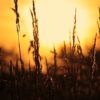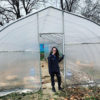Wednesday, September 9, 2020 | 20 Elul 5780 Dear All, These of course will be unique chagim. The shuls and rabbis are preparing hard, and now is a time to send love to every rabbi, to every cantor, to every leader of a minyan, to every leader of a shul. Elbow hugs to everyone. Our own pivot has been parallel. Having trialed small Covid-safe retreats at Isabella Freedman, we are now planning to do small retreats for the chagim. Normally, as you know, part of the essence of Hazon and of retreats at Isabella Freedman is a deep commitment to inclusive community. At Sukkahfest, for instance, there will typically be davening in many different flavors – “orthodox”; “trad egal”; “renewal”; “meditation” and so on. (I use quote marks because each word is only a short-hand and an approximation – often not a very good one – for the davening itself. C’est ca.) This time around – for capacity reasons – we are stacking, as it were, horizontally rather than vertically. So Rosh Hashanah and Shabbat Shuva/Yom Kippur will be liberal orthodox, led by Rabbi Avram Mlotek and Yael Kornfeld; the first yontef of Sukkot will be led by Rav […]
















